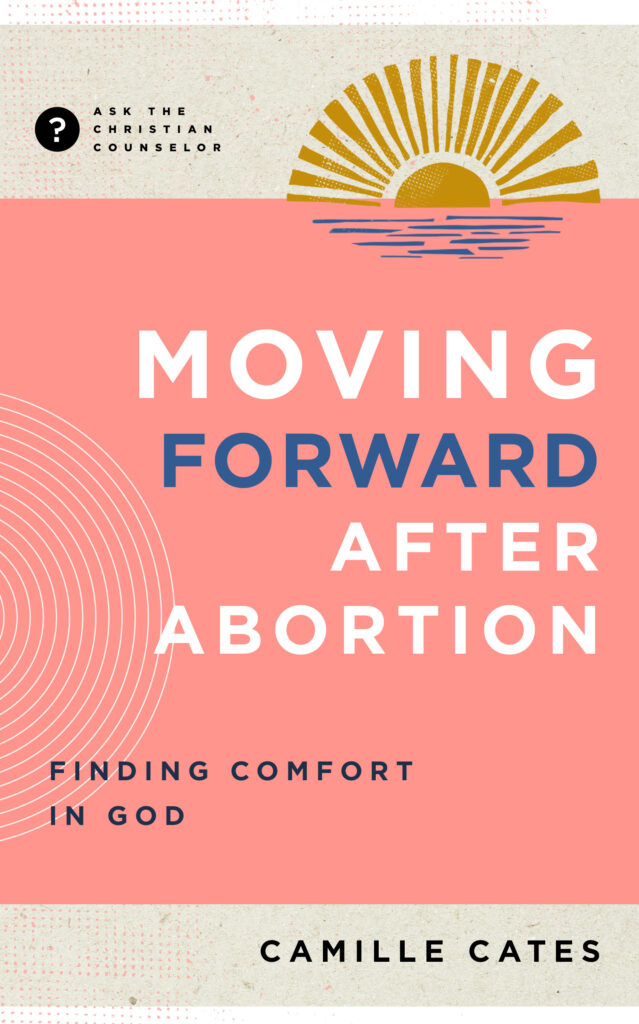“We want to honor our newest moms,” the pastor announced one Mother’s Day—our first at the church where my husband had been hired as the new youth pastor. I froze as a few women started to stand. I was about five months pregnant with our first child. I felt taps on my shoulder and elbows nudging me to stand, but still, I hesitated. As I finally rose to my feet, my pregnancy just beginning to show, I was overwhelmed with different emotions. You see, I was not a new mother, and no one, except my husband, knew my secret past.
At 18, I had had an abortion. For the first three years of my marriage, I had been terrified that God would not allow me to become pregnant again because of the abortion. When I finally became pregnant, I was ecstatic that God had blessed us with this new little life growing inside my womb. At the same time, I was filled with guilt to be recognized as a “new” mom and grief at the thought of how old my aborted baby would be now.
Over the years, I’ve watched many women be acknowledged and honored for various reasons on Mother’s Day: the newest mother, the oldest mother, the mother with the most children. While this well-meaning celebration of motherhood continues to be carried out by countless churches, there are a multitude of moms stuck in sorrow and shame on this particular Sunday; their consciences bearing witness to the loss of their preborn children by their own “choice.”
Certainly, some women have gone on to bear other children as I have. Yet, when asked how many children they have, they lessen the count by one, two, or three, feeling ashamed and wanting to keep secret a previous abortion(s). The question hits hard, whether it is asked by a new acquaintance, on a medical form, or during a church service on Mother’s Day.
Certain scriptures can even seem to rub against the wounded heart of the woman who has had an abortion. For example, “Behold, children are a heritage from the Lord, the fruit of the womb a reward” (Psalm 127:3).
Children are indeed a blessing, a reward and heritage from the Lord. But how do the women hear this truth—those who feel gut-wrenching guilt over not cherishing all their pregnancies equally? Often, they sit silently in the pew. No matter how many children the Lord has blessed them with since the abortion—their hearts burdened with grief and remorse over the death of their once-unwanted child.
As a society, we often overlook the pain and sorrow of women who have had an abortion, especially on a day like Mother’s Day when motherhood is cherished and esteemed. What about those whose motherhood is marred by sin?
How can the church engage with those who struggle after their choice to abort? One way the church can help women heal after an abortion is to acknowledge the sorrow and hurt that fills their hearts, and offer them the Christlike love and support they desperately need. Additionally, Christians can create a safe space where women can share and heal without fear of judgment and condemnation. This enables them to begin healing from the past and move forward, finding comfort in God through his Word.
As I reflect on my own journey of motherhood, I am reminded of the grace and mercy of God in bringing me to the beautiful truths of his Word that imparted deep healing for my soul. Despite my past sins, God has blessed me with a beautiful family and has redeemed my story for his glory. Now, I am passionate about other women who have had abortions finding hope and healing in Christ, knowing that God wants to use their stories for his purpose and his plan.
This Mother’s Day let’s not only remember the joys of motherhood but also the struggles and sorrows that many women are carrying. As the church, let us reach out with love and create a community where all mothers are acknowledged, regardless of their past. Pray for women who have had abortions to know the love of Christ through you and your church this Mother’s Day, and every day.
Moving Forward After Abortion
Counselor Camille Cates points women who may be facing hurt, confusion, and unanswered questions after an abortion to finding grace and mercy in God’s love. In Moving Forward after Abortion, she helps them to see that God is forgiving, gracious, merciful, and loving, and offers comfort to those who come to him to experience restoration instead of brokenness.






